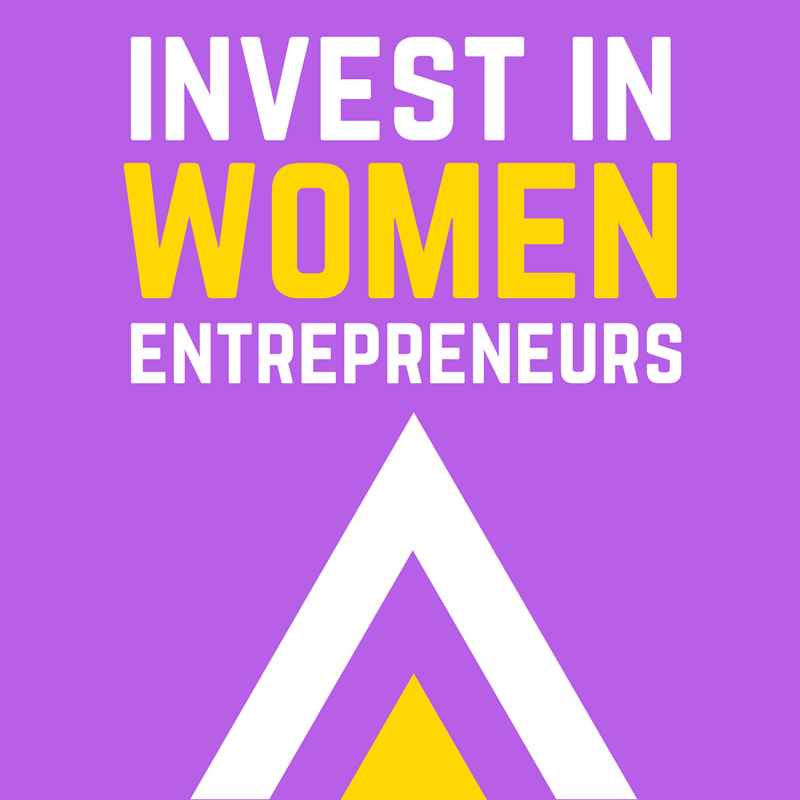Maria Rogers Pascual, Executive Director of Prospera
We need women to be in the lead right now in our society. And it’s not even women as a sex or a gender, but a more feminist way of leading is what the country, what the world, is really calling for; more caring for people, families, communities, and the environment. It’s more of a paradigm shift and an unlearning that we need to do. This is the moment, right now, that women need to lead, and that informs Prospera a lot. In order to lead, we need to heal, we need to support one another, we need to be unapologetic, and we need to make money. This is what gets me up every morning. – Maria Rogers Pascual
Maria Rogers Pascual is a stream of sunlight through an open door. She is inviting you to the other side, to something more collaborative and communal in the lonely world of entrepreneurship, particularly entrepreneurship for Latina immigrants, who face very particular challenges when they come to the U.S., like having a family to care for and often holding multiple jobs. Maria is the director of Prospera in Oakland, CA, a space that is changing the way we think about entrepreneurship, and how to build a strong, sustainable, and equitable economic future for everyone.
Maria’s background inspires her fire for women and community. Her mother was a refugee from the Spanish Civil War and her family emigrated from Mexico when she was 13 years old. She remembers growing up with many mothers and experienced the collaborative and cooperative spirit of Latina women from an early age.
According to Maria, when Latinas immigrate, many already have experience working collaboratively, much like she did growing up, but they arrive knowing the individualistic nature of the entrepreneurial model in the U.S. “They come to this country thinking the only way to do it is on your own, and we try to support women to unlearn that.” At Prospera, what the women know intuitively and experientially about supporting each other is what builds them as a community of women and as individual leaders and entrepreneurs.
Before Maria joined Prospera as its director, it was called WAGES (Women’s Action to Gain Economic Security). She came to the nonprofit as a consultant and contractor in 2013 to help with conflict resolution as well as leadership coaching. Eventually, they asked her to join full-time, but she hesitated at first. Having worked at non-profits before, and having the desire to start her own organization, she wasn’t sure if taking on this space was right. But the focus on women entrepreneurs, particularly Latina immigrants, is what drew her in. After joining in 2015, she helped adjust the model from building cooperatives that are eventually handed over to their workers, to a place where women come with their own ideas and are supported through their growth, cooperative or otherwise. “Prospera is about doing with rather than doing for,” Maria said. Women can take their own insight into the needs of the community and use that to build something together.
Prospera is a hub where Latina immigrant women entrepreneurs come because they’re interested in being entrepreneurs. We create community, education events, fireside chats with successful entrepreneurs, and have an annual summit where they can come together for a day-long event – our 3rd one is this year in Berkeley – for members and non-members.
Prospera offers a 30-hour program where women learn how to start a cooperative business, and while the focus is on cooperatives, Maria recognizes that this model isn’t for every person nor is it for every business. The cooperative model taught at Prospera is more of a mindset and set of values and principles, Maria noted. “It’s not about competition, it’s about actually wanting [everyone] to succeed.” She then told the story of a member who was hospitalized, and the Prospera community of women entrepreneurs came together to help take care of her clients and her family while she recovered. This is what it’s about. It’s about building together and the strength that comes from that mutual support.
Once women graduate from the program they continue to have access to monthly meetings where they gather together for support and celebration. Additionally, Prospera has a fellowship program that all of their graduates can apply for. The fellowship offers more in-depth support, coaching, and training beyond Prospera’s regular offerings, and it’s rewarded to the businesses that have the most passionate leaders and will have the greatest economic impact. You can read more about the current fellows on their website.
While Prospera is doing incredible work with a model that is at the same time innovative and deeply rooted in traditional culture, Maria has a dream of something even bigger. It’s called The Power of a Dream Incubation Fund, and it will have three main components: 1) seed grants for the first year so that the women will have 20 hours a week to devote to developing the business; 2) a home for the incubation period, such as a co-working space with offices and meeting rooms to protect the development time; 3) a revolving loan fund where they can get loans of $20k and up, so that women who won’t qualify for traditional loans aren’t held back by lack of funds. Additionally, Maria wants the fund to have money that women can access for health and childcare so that they aren’t weighed down by surprise financial burdens that could get in the way.
The work that Prospera does, and the vision and drive that Maria brings, are a much-needed change from the model that we are accustomed to. Being an entrepreneur is a long and lonely journey, and women entrepreneurs everywhere will tell you just how valuable community is for their spirit and for their business. Prospera not only provides a space for community, they build it into the business model.

